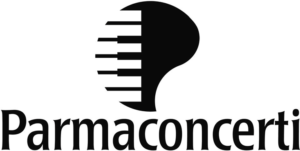The Gallbladder and Alcohol: Effects & Drinking After Removal
In conclusion, alcohol consumption can affect the gallbladder in various ways, including inflammation, gallstone formation, and other complications. Understanding these risk factors can help individuals make informed decisions about their alcohol consumption and take steps to prevent gallstone formation. Alcohol consumption can have various effects on the gallbladder, a small organ located beneath the liver.
Family Role in Compassion and Care
- Based on the results of these tests, your doctor will be able to make a diagnosis and recommend appropriate treatment options.
- Chronic alcohol consumption can lead to changes in the composition and concentration of bile, a fluid produced by the liver and stored in the gallbladder.
- Delicious meat-free meals include a tofu stir-fry, bean burritos, falafel wrap, and vegetable and cheese pizza.
- To ensure your gall bladder still contracts and keeps excreting bile, still consume some fat, around 20 grams, each day.
- This includes moderating your alcohol consumption to reduce the risk of gallstone formation and gallbladder inflammation.
They can also provide personalized advice based on your specific circumstances. Seeking medical advice when experiencing symptoms or concerned about gallbladder health is crucial for accurate diagnosis and appropriate treatment options. Overall, understanding the relationship between alcohol and the gallbladder is essential in making informed decisions about alcohol consumption and maintaining optimal health. Understanding the potential link between alcohol and gallstones is essential in making informed decisions about alcohol consumption and maintaining the health of your gallbladder.
Consulting with a healthcare professional can provide personalized guidance and ensure that you are taking the necessary steps to maintain the health of your gallbladder and overall well-being. For individuals with alcoholic cholecystitis or other alcohol-related liver diseases, abstaining from alcohol is crucial to prevent further damage to the gallbladder and liver. Support from healthcare professionals, as well as counseling and support groups, may be beneficial for individuals struggling to reduce or eliminate their alcohol consumption. Once a diagnosis has been made, the treatment of difference between aa and na gallbladder problems related to alcohol will depend on the severity of the condition.
While there are various myths and misconceptions surrounding this topic, it is essential to separate fact from fiction. In this section, we will provide an introduction to alcohol and the gallbladder, as well as an overview of the gallbladder itself. Excessive alcohol consumption has been found to increase the risk of developing gallstones.
Alcohol is a widely consumed beverage that can have both positive and negative effects on the body. When it comes to the gallbladder, there is ongoing debate about the impact of alcohol consumption. Some studies suggest a link between alcohol and certain gallbladder issues, while others provide conflicting results. Gallstones are one of the most common alcohol-related gallbladder problems.
The NOS scores of the 24 included studies ranged from 6 to 9 stars (Appendixes 2 and 3). One study was rated as 6 stars since it used self-report for ascertainment of exposure and outcome in nurses. They can range in size from as small as a grain of sand to as large as a golf ball. Gallstones are typically made up of cholesterol or bilirubin, a pigment produced by the liver.
How to Stop Hiccups After Drinking Alcohol
When alcohol damages the liver, the liver can continue to function for a while because the liver can sometimes recover from mild damage. Also, the liver can function normally even when about 80% of it is damaged. However, if people continue to drink alcohol, liver damage progresses and may eventually result in death.
It’s important to note that while alcohol consumption can contribute to the development of gallbladder stones, it is not the sole cause. Other factors, such as obesity, a sedentary lifestyle, a high-fat diet, and certain medical conditions, can also play a role in the formation of gallbladder stones. Understanding the underlying causes of gallbladder stones is crucial in comprehending the potential impact that alcohol consumption can have on their development. In the following section, we will explore the relationship between alcohol and gallbladder health, shedding light on how alcohol may contribute to the formation of gallbladder stones.
Get to a Healthy Weight
Secondly, chronic, heavy drinking can lead to long-term liver damage, further affecting the liver’s ability to produce bile over a longer-lasting period. Because of the gallbladder’s proximity to the liver, some people wonder how drinking impacts the gallbladder. We know thatalcohol affects the liver— consumingtoo much alcoholcan cause a variety of liver problems that range from mild to severe. However, alcohol use and gallbladder health don’t have the same clear relationship. We typically tend to think of things like breast cancer and liver conditions when considering thedamaging effects of alcohol.
When the bile ducts become blocked, it can lead to a buildup of bile, causing pain and potentially leading to jaundice or infection. Cholecystitis is gallbladder inflammation that develops due to a blocked bile duct. This causes bile to back up in the gallbladder, leading to inflammation. More research is necessary to determine the exact effects alcohol consumption can have on the gallbladder.
However, they occasionally block the bile ducts, causing upper right abdominal pain, usually after eating. However, healthcare professionals generally recommend that people consume little to no alcohol. The gallbladder doesn’t tend to get a lot of attention unless a problem arises.


